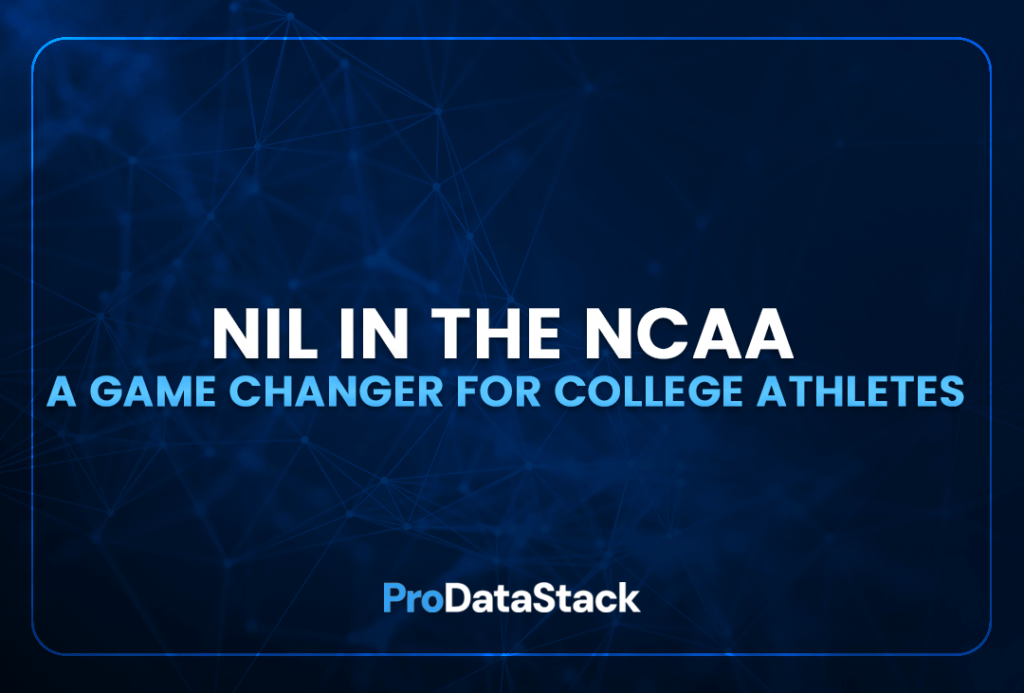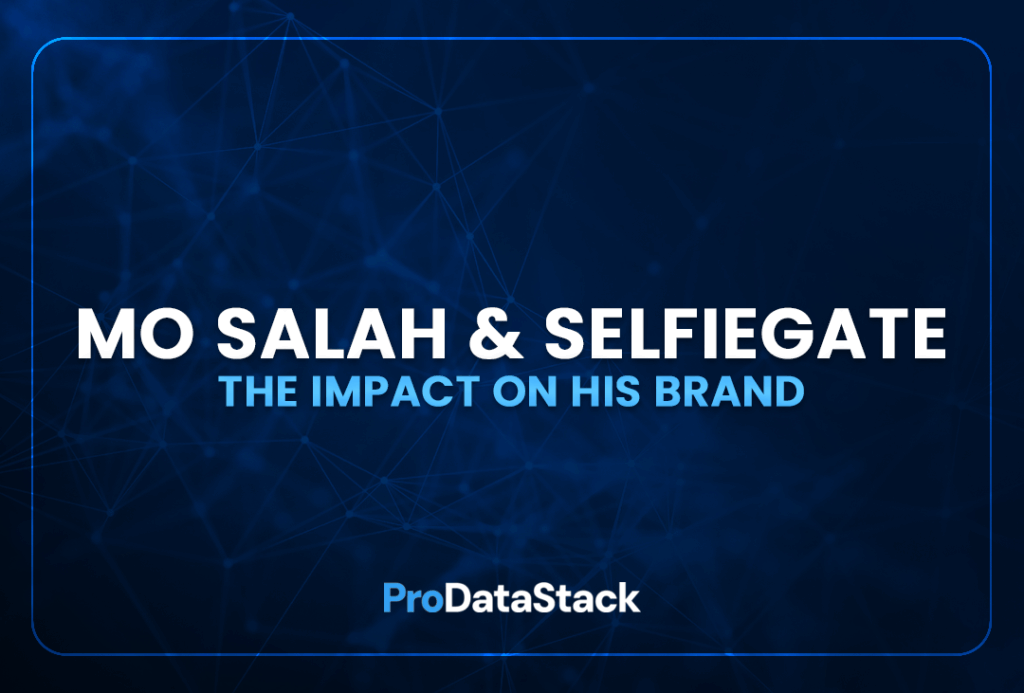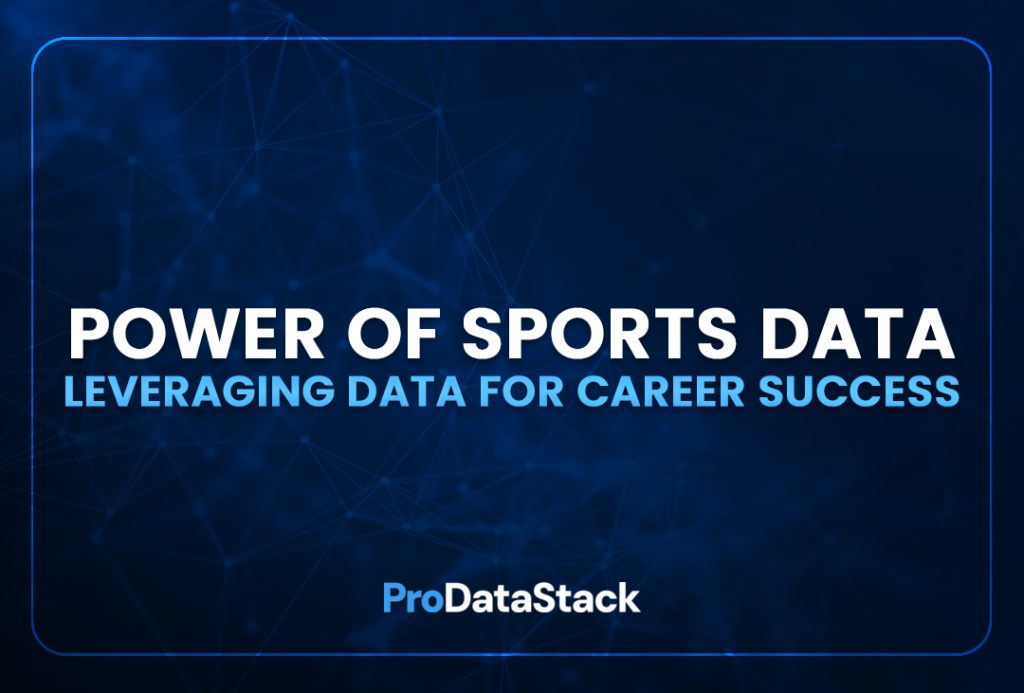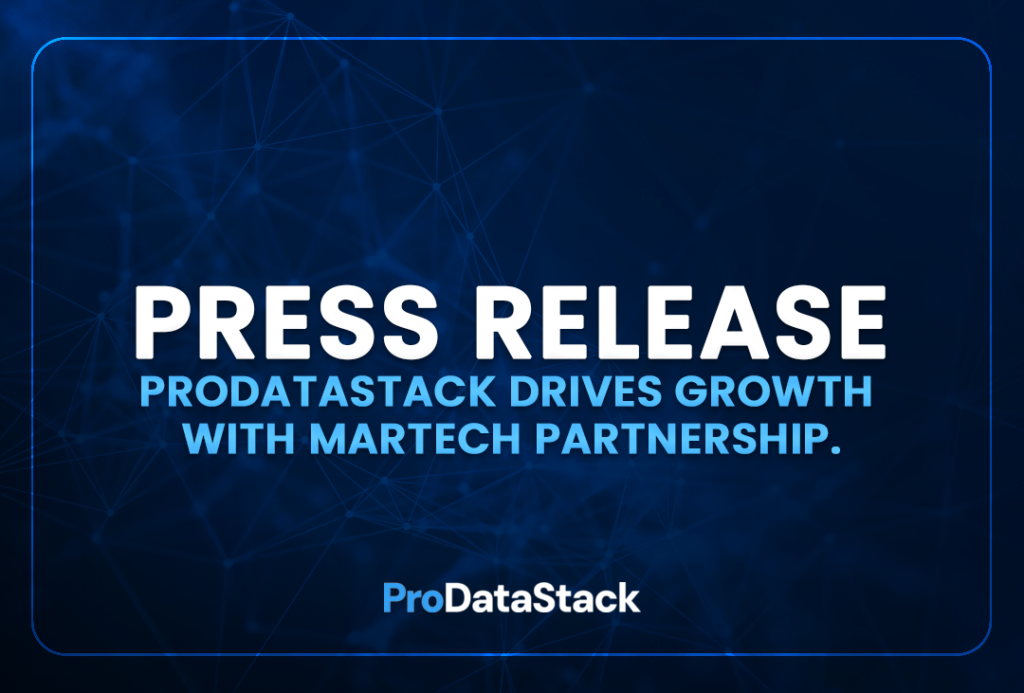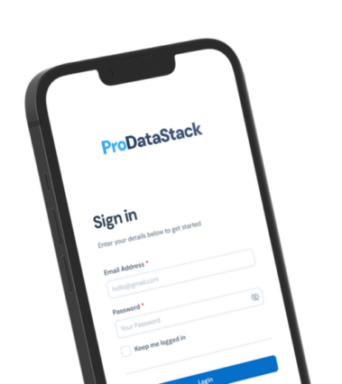There’s already been a lot written about the NCAA’s (National Collegiate Athletics Association) Name, Image, and Likeness (NIL) policy, implemented in July 2021, so I won’t revisit the pros and the cons – I’ll just summarise the principles in case this is new to you, and then move onto why we’re paying so much attention to it at ProDataStack.
What is the NCAA’s NIL policy?
The NIL policy enables college athletes to earn money from endorsements, sponsorships, social media, and other commercial opportunities. There are quite broad state and school-specific guidelines that must be followed but it’s well worth it as the 500,000+ athletes can now profit from their personal brand without losing their college eligibility.
For those of you already familiar with image rights in the world of professional sport, you won’t be surprised to know that NCAA athletes can not appear in commercial deals wearing college gear except with express permission from the college itself. However, unlike pro sports, the colleges themselves are prevented from buying their athletes’ NIL rights. This is an opportunity purely for the athletes, as individuals, without any associated college branding.
Why was the NIL policy introduced?
As with most new legislation introduced, it was a result of pressure from the people most impacted by it – the college athletes. The starting point was that students with other skills, for example musicians, entrepreneurs, and actors could make money from their talents, but athletes couldn’t. A huge inequality.
Another driver was the salient reality that college sports in America are already huge commercial enterprises. For example, the average attendance for a college (gridiron) football match is bigger than the 2023/24 average Premier League attendance – 41,867 versus 38,617. And with the drivers of the $billions in revenue for schools, media partners and the NCAA, the athletes themselves – it makes sense that they should earn a share. (And by the way, this is no different to professional sports in other countries – hence the reason we built ProDataStack. You can read more about our approach to athletes and sponsorship in a previous blog post – Athletes and Sponsorship, Know Your Worth).
What are the Challenges in Implementing the NIL Policy?
Let’s take a brief look at the challenges the NIL policy has brought up –
1) As with the USA’s entire legal system, the NIL laws are shaped by both nationally provided guidelines and state-level legislation meaning nationwide organisations involved with NIL must work across complex layers of compliance.
2) There’s a concern some colleges are using NIL deals as a backdoor way to pay for students to play for them – something expressly forbidden under NIL laws. Think about the way European soccer clubs have been accused of unfairly navigating UEFA’s “financial fair play” and you’ll get the drift.
3) As with pro athletes, there’s a concern that the absence of structured support for these college athletes, may result in them being exploited and face tax consequences they’re not aware of. (By the way, another parallel with the pro game where financial literacy was recently cited by former Anton Ferdinand, the former Premier League soccer players, as the number one thing he’d go back and tell his 18-year-old self.)
Other cited concerns include data privacy, the exclusion of international athletes whose student visas prevent money being earned from NIL deals, the compliance burden on colleges to review and monitor all NIL activity, and the significant inequity across all athletes (although that last one isn’t limited to athletes, it’s the same for other areas of talent. More about that at a later date…)
What are the NIL Opportunities?
But now let’s turn to the significant opportunities –
1) An incredible (although inequitable) earning opportunity for all athletes. With the top earner, University of Texas’ Quarterback Arch Manning, having an estimated NIL valuation of $6.6 million. However, even the lesser-known athletes are making smaller, niche, local deals. Again, drawing parallels with pro athletes, particularly in the English football pyramid – from the giddy heights of the Premier League down to the reality of League 2 football.
2) The ability to start building their brands from an early stage with a real-world introduction to entrepreneurship and influencer marketing. And if you believe the futurists, 15 or 20 years from now we’ll all be our own brand – athletes are just ahead of the rest of us.
3) Despite the concern about athlete support, NIL provides students with real life experience in contract negotiation, finances, and marketing. A huge benefit to an education in areas that will be relevant in their future lives.
Other opportunities include a level of empowerment and responsibility at a young age, and a natural community and eco-system that’s been created thanks to the NIL policy with collectives springing up that students can be part of.
How can ProDataStack Benefit NCAA Athletes?
ProDataStack was built with professional athletes and their agents in mind, so the opportunities emerging from the NCAA’s NIL policy align perfectly with what we offer:
1) Understanding sports brand value by tracking reach, measuring sentiment and exposure impact, and benchmarking against (anonymised) peers.
2) Fusing on-field performance metrics and off-field marketing data for a holistic view of an athlete’s sports brand value.
3) Supporting NIL contract negotiations by using data-driven insights to justify proposed fees with access to key metrics that allow a professional approach.
4) Building a database that provides direct access to fans with control over its growth and monetisation, and most importantly, long-term value even after graduating.
5) Making data-informed decisions, enabling brand growth with intent, not just activity.
Why Should an NCAA Athlete use ProDataStack for NIL?
ProDataStack collects, aggregates, and analyses six extensive datasets so that NCAA athletes have access to their on-field and off-field data. In one place.
Through a single intuitive dashboard, an athlete can access hundreds of data points built from thousands of rows of data, alongside AI-powered contract benchmarking and future earnings projections.
We’re here to make sure every college athlete lands the deal they deserve—not just the one on the table—with the insight to make informed decisions. We level the playing field in negotiations, giving college athletes a real shot at commercial success while building serious brand value along the way.
If you’re a college athlete, agent, or an NIL collective and you’d like to know more about ProDataStack, you can book a demo today by clicking here.

